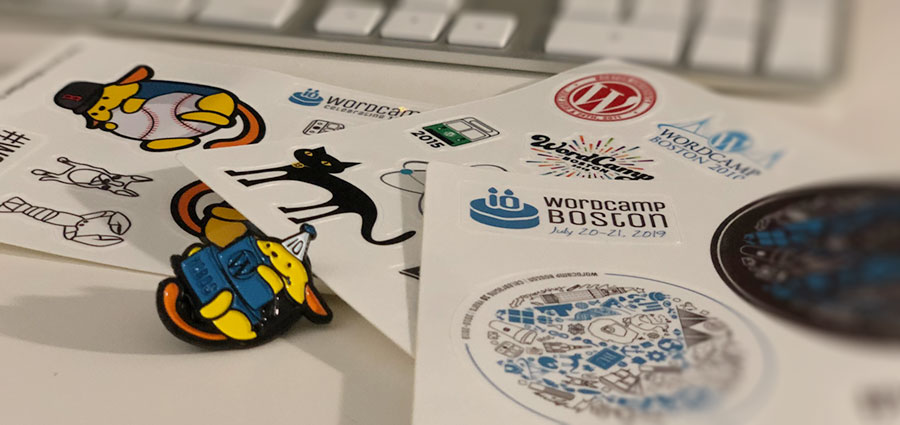WordCamp Boston 2019: Takeaways

If I were to pick one word as the theme for this year’s WordCamp Boston, it would be ACCESSIBILITY.
Now, the obvious application of this – to anyone who works with websites – is ADA compliance. And that is certainly a major component, but it goes beyond that. I mean accessibility in every sense of the word, and particularly when that access is part of personal freedom.
- Access to information. Access to information regardless of the hardware you have.
- Access to your customers. Access to your audience.
- Access to your personal information. Who else has access to your information.
- Access to opportunity.
A presentation by Aaron Campbell, included the following statement:
The internet is the single most effective information sharing tool in all of history.
That’s a pretty powerful concept. Perhaps the most powerful…
Knowledge is power. Information is liberating. Education is the premise of progress, in every society, in every family.
Kofi Annan
Knowledge is, in every country, the surest basis of public happiness.
George Washington
A well informed citizenry is the best defense against tyranny.
Thomas Jefferson
So what should we take away from all information presented by the speakers and organizers?
1.) Anyone should be able to access the information on your website.
No one should be excluded from learning what your site has to offer because they “see” the page different than you do. This needs to get out of the “nice to have” column and into the “must have, without question” – yeah, and it’s the law.
Whether you are a website owner or a website designer or a website builder, it’s time to make the effort. Are we going to get it perfect? Probably not. The goal is to continually try to make it better.
So for the love of Pete, start filling in your ALT tags! No, it won’t fix everything, but it will help.
2.) Own your content. Have your space on the internet that people can trust is authentically you, and no one can take away, claim ownership over or alter.
Maybe take a gander at those terms of use we all agree to without ever actually reading. You may be surprised at what you find.
Using only 3rd party platforms (yes, we are looking at you Facebook), means that your message is never entirely in your control.
3.) Also regarding your content – Be honest, original and authentic. Don’t do something simply because “everybody’s” doing it. You do you.
Oh, and don’t steal other’s people stuff. Just ‘cause it’s on the internet, does not mean it is free for the taking. Those are someone else’s words. Someone else’s photograph. Someone else’s code.
There are plenty of places where these resources are freely shared (and that includes “for no money” options) for you to adapt to your needs. Take the 2 extra seconds to make sure you are using them.
4.) Remember the mission of the W3C (led by the inventor of the World Wide Web and responsible for developing the web standards that govern the internet today), and adopt that into your businesses values.
The Web was invented as a communications tool intended to allow anyone, anywhere to share information.
Anytime an entity interferes, limits, blocks or otherwise alters that exchange, there should be concern.
5.) We have the power to affect positive change.
Yes, as individuals, we are perhaps to small too be heard – too small to make a difference. But WE can.
When I say we, I mean a number of different things:
- We, the content generators and builders of the internet.
- We, the small business owners and employees.
- We, the parents of the next generation.
- We, the citizens of our towns, states, nation and global community.
At this point, I would invite you to check out the “World-Wide Work” presentation by Ethan Marcotte. He has given this presentation earlier this year, but I would still call it the keynote of WordCamp Boston 2019. At the time of this post, a WCBOS video was not available, but you can watch it on newadventuresconf.com
I would like to thank the WordCamp Organizers for once again assembling a diverse collection of speakers and attendees who have pushed me to continue to learn and better myself as a professional and a person.
I’m going to do something a bit out of character. I’m going to ask you to do something a little political. If you don’t know about Net Neutrality, Google it. To protect free and equal access to the internet for all individuals and all businesses, we need to legislate it. The idea that we could have a client with an amazing services or product, and we could build them a beautiful and highly functional website, and their customers could never access it, because that client doesn’t have the means to pay the ISPs what their competitors can, is very upsetting. It is wrong. Please let your Senators know that you believe it is too: https://www.battleforthenet.com/